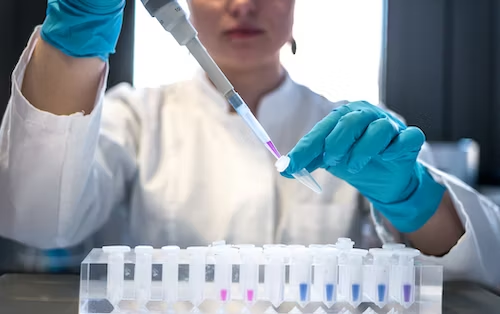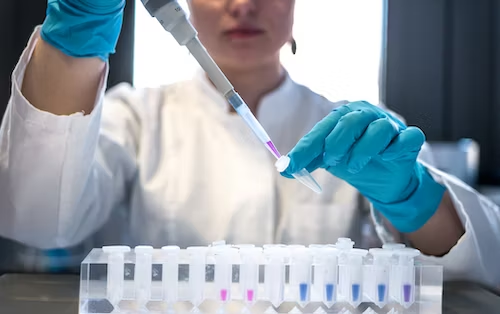
Biologics are revolutionizing the pharmaceutical industry, offering new treatments for diseases that were previously untreatable. These complex molecules, derived from living organisms, require sophisticated manufacturing processes and specialized expertise. As the demand for biologics continues to grow, a select group of companies is leading the way in their development and production. This article explores the leaders in biologics manufacturing, highlighting their contributions to the industry and the innovations that set them apart.
The Importance Of Biologics In Modern Medicine
Biologics are at the forefront of medical advancements, providing targeted therapies for a wide range of conditions, including cancer, autoimmune diseases, and genetic disorders. Unlike traditional drugs, which are chemically synthesized, biologics are produced using living cells, making their development and production more complex and resource-intensive.
The complexity of biologics manufacturing necessitates the involvement of specialized biologics CDMO companies that possess the expertise and infrastructure to handle these intricate processes. These companies play a critical role in bringing biologic therapies to market, ensuring their quality, safety, and efficacy.
To learn more about the impact of biologics on modern medicine, visit Science Daily.
Leading Biologics Manufacturers
Amgen: Pioneering Biologic Therapies
Amgen is a global leader in biotechnology, known for its pioneering work in the development of biologic therapies. The company has a strong portfolio of biologics, including therapies for cancer, cardiovascular disease, and inflammatory disorders. Amgen’s commitment to innovation is reflected in its state-of-the-art manufacturing facilities, which utilize advanced technologies such as single-use bioreactors and continuous manufacturing processes.
Amgen’s leadership in biologics manufacturing is further supported by its extensive research and development efforts, which focus on discovering new therapeutic targets and developing next-generation biologic treatments.
Genentech: A Leader In Biologic Innovation
Genentech, a member of the Roche Group, is renowned for its innovative approach to biologics manufacturing. The company has a long history of developing groundbreaking biologic therapies, including the first recombinant human insulin and the first targeted cancer treatment.
Genentech’s manufacturing capabilities are characterized by their use of high-density cell culture systems and cutting-edge purification technologies, which enable the efficient production of high-quality biologics. The company’s focus on continuous improvement and technological innovation ensures that it remains at the forefront of biologics manufacturing.
For insights into the latest innovations in biologics manufacturing, check out TechCrunch.
The Role Of CDMOs In Biologics Manufacturing
Providing Comprehensive Solutions
Contract Development and Manufacturing Organizations (CDMOs) are essential partners in the biologics industry, providing a wide range of services that support the development and production of biologic drugs. CDMOs offer expertise in areas such as cell line development, process optimization, and regulatory compliance, enabling pharmaceutical companies to bring biologic therapies to market more efficiently.
One notable CDMO that is leading the way in biologics manufacturing is biologics CDMO companies. They provide comprehensive services that cover the entire lifecycle of biologics, from early-stage development to commercial production. Their advanced technologies and commitment to quality make them a trusted partner for biopharma companies looking to develop and manufacture biologic therapies.
Ensuring Quality And Compliance
CDMOs play a critical role in ensuring the quality and regulatory compliance of biologic products. They offer extensive testing and quality control services to verify the safety, efficacy, and purity of biologics. This includes conducting rigorous testing to detect any contaminants and ensure that products meet stringent regulatory standards set by agencies such as the FDA and EMA.
By providing these services, CDMOs help biopharma companies navigate the complex regulatory landscape and ensure that their biologics are safe and effective for patient use.
Innovations In Biologics Manufacturing
Advanced Manufacturing Technologies
The biologics industry is characterized by continuous innovation, with companies investing in advanced manufacturing technologies to improve efficiency and quality. Some of the key technologies driving innovation in biologics manufacturing include:
- Single-Use Technologies: These systems use disposable components, such as bioreactors and filtration units, which reduce the risk of contamination and improve production efficiency. Single-use technologies are particularly beneficial for the production of small-batch biologics and personalized medicines.
- Continuous Manufacturing: Unlike traditional batch processing, continuous manufacturing involves the continuous flow of materials through the production process. This approach increases throughput, reduces downtime, and ensures more consistent product quality.
These technologies are helping biologics manufacturers to reduce production costs and improve the scalability of their operations, making biologic therapies more accessible to patients.
Personalized Medicine And Biologics
Personalized medicine is an emerging trend in the biologics industry, involving the development of therapies that are tailored to the individual needs of patients. This approach requires the ability to produce small batches of biologics that are customized based on the patient’s genetic profile and disease characteristics.
CDMOs are playing a crucial role in supporting personalized medicine by developing flexible manufacturing solutions that can accommodate the unique requirements of these therapies. This includes using advanced cell line development techniques and implementing scalable production processes that can be quickly adapted to produce personalized biologics.
For more information on personalized medicine and its impact on biologics, visit Nature.
Challenges And Future Directions In Biologics Manufacturing
Addressing Technical Challenges
Despite the advancements in biologics manufacturing, several technical challenges remain. These include optimizing cell line development to increase productivity, improving process efficiency to reduce costs, and ensuring the stability of biologic products. Ongoing research and development efforts are focused on addressing these challenges and developing new technologies that enhance the production of biologics.
CDMOs are at the forefront of these efforts, investing in the latest technologies and methodologies to overcome technical hurdles and drive innovation in biologics manufacturing.
Expanding Access To Biologics
One of the key goals for the future of biologics manufacturing is to expand access to these life-saving therapies. Advances in manufacturing technologies and process optimization are making it possible to produce biologics at a lower cost, increasing their availability to patients around the world.
Innovators in the field are also exploring new delivery methods and formulations that improve the efficacy and convenience of biologics, making them more accessible to diverse patient populations. These efforts are essential for ensuring that all patients can benefit from the advancements in biologics manufacturing and receive the treatments they need.
Conclusion
Biologics manufacturing is a rapidly evolving field, driven by advances in technology and a growing demand for innovative therapies. Leading companies and CDMOs are playing a crucial role in this transformation, providing the expertise and infrastructure needed to develop and produce high-quality biologic drugs. By leveraging their capabilities, these organizations are helping to expand access to biologics and improve the lives of patients around the world.
Interesting Related Article: “The Growth of Traditional Chinese Medicine In The US“









